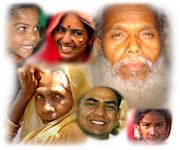PIL in the Supreme Court on Monday made a strong pitch for utilising the elaborate ‘Census 2011’ mechanism to end the 80 long years of speculation about the exact population of other backward classes (OBC), which had been the basis for 27% reservation in jobs and educational institutions.
PIL petitioner Kishore Govind Kanhere through counsel D K Garg said that while the Mandal Commission estimated that OBCs constituted 52% of the total population, the National Sample Survey Organisation (NSSO) in its 61st round of survey (2004-05) had pegged it at 41% in its report on employment and unemployment situation amongst various social groups in India.
Arguing before a Bench comprising Chief Justice K G Balakrishnan and Justices Deepak Verma and B S Chauhan, the counsel said if the census took steps to identify the numbers of SCs and STs, why should the OBCs be left out of the purview of exact enumeration of their numbers.
When the Bench looked up to Solicitor General Gopal Subramaniam for a response, the law officer immediately assured the court that there was no need for the Bench to issue notice to the Centre and that he would get the response of the government on this issue within three weeks.
The PIL said that the last caste-based census was held in the year 1931, wherein the OBCs were covered and complained that despite a large number of representations to the home ministry for inclusion of OBCs in Census 2011, there had been no positive response. It said the social justice and empowerment ministry had conceded that it had been fixing targets under various scheme for upliftment of OBC population without having the data about their numbers. Even this ministry had written to the census authorities for finding out the exact number of OBC population, but the request had been turned down, the petitioner said. The PIL referred to the law relating to 27% reservation for OBCs in central educational institutions and the subsequent challenge to its constitutional validity in the Supreme Court. “In order to provide reservations for backward classes among citizens in public educational institutions and for providing equal opportunity in public employment, it is necessary that census should cover OBCs as envisaged under Article 340 of the Constitution,” the petitioner said.

